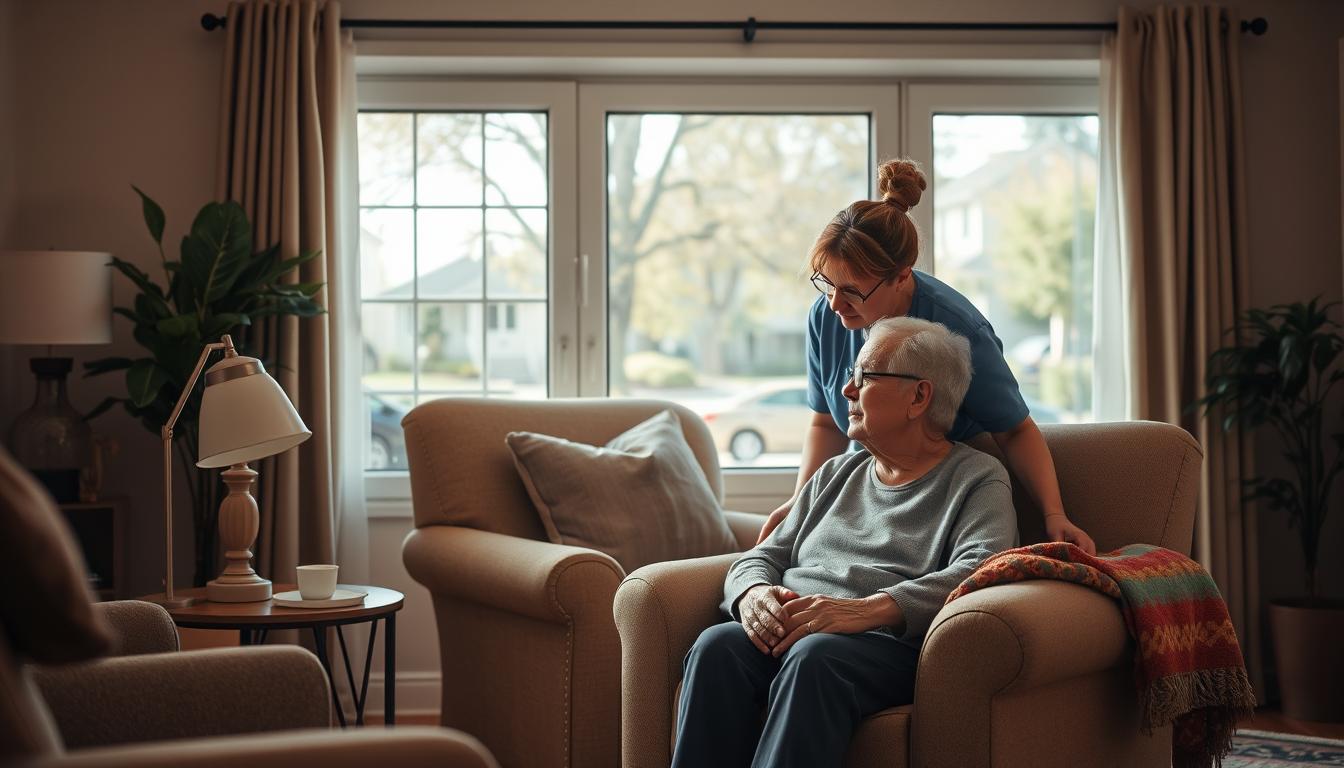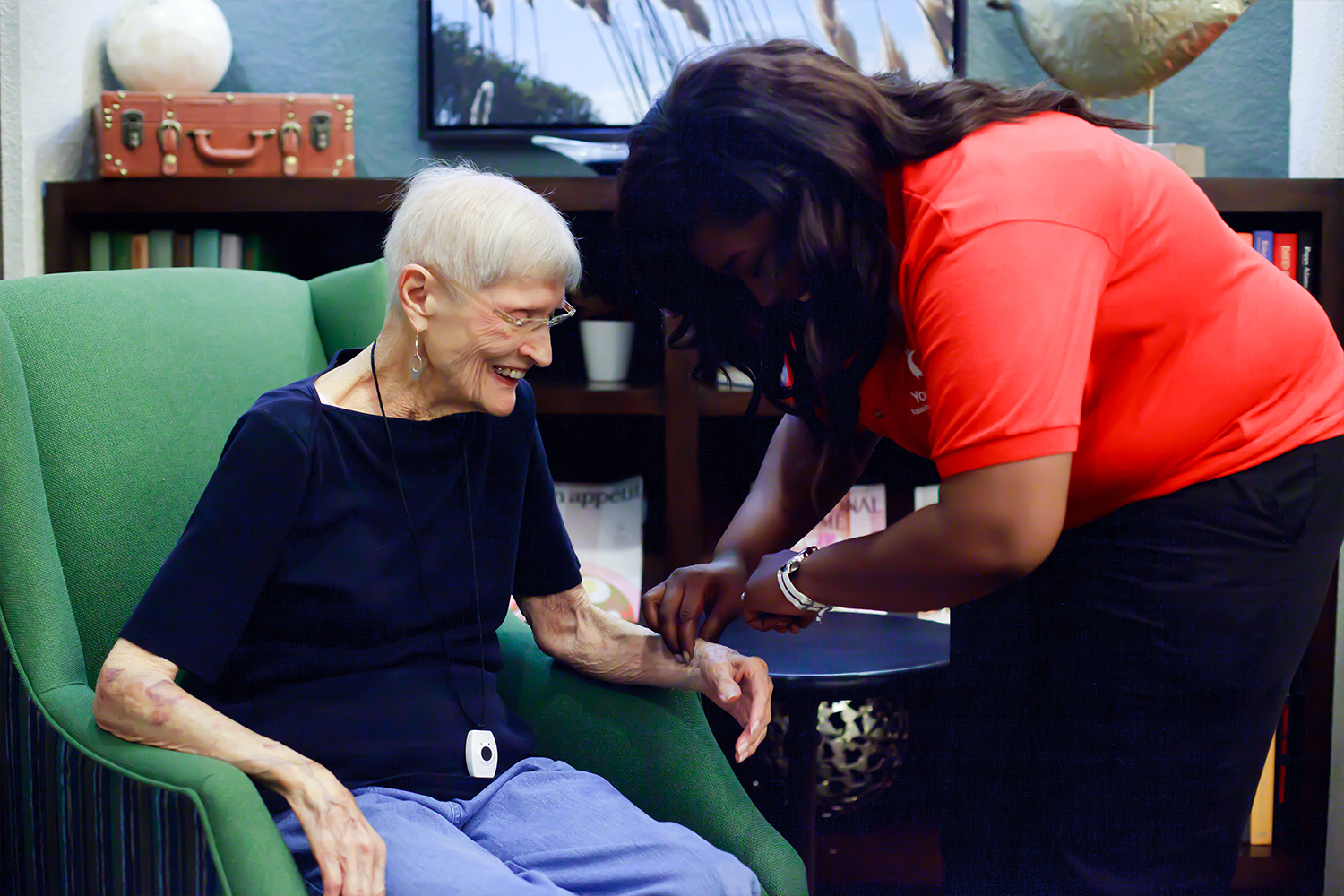What to Expect During Your First Home Care Visit
May
01
2025
Starting home care is a big step. Your first visit is key to getting the care you need. The assessment team should complete a comprehensive assessment. This assessment should exam how you function in your environment, identify risks and review current and past health challenges both physically and cognitively, this could take up to 2 hours.
A highly skilled care assessor will offer recommendations and suggestions on eliminating risks in the environment, including items that should be included in the Care Plan, answer questions, and teach you how to care for yourself at home. This visit sets the stage for establishing goals and expectations that meet your needs and gives you the best outcomes.
Key Takeaways
- Your first home care visit involves a thorough assessment and review of current and past health challenges.
- A care plan will be established just for you, based on your needs.
- Your skilled care assessor will review risks identified and care that needs to be included in the care plan.
- Answer any questions you have.
- The visit may last up to 2 hours to cover all your care needs.
Knowing what to expect for your home care journey can make you feel more informed and allows you to have a voice in your care program. Your care team is dedicated to giving you the best care at home. They want to help you reach your goals and the best outcomes in your own space.
Understanding Home Care
Home care is a great option for those needing skilled care or personal care at home. It helps you stay independent and improve your health in the comfort of your home.
When To Seek Home Care
You need home care if you struggle with activities of daily living, have health conditions that need monitoring or cognitive issues that prevent a safe aging in place environment. Quality of Life is essential for all of us as we age, when life is harder than it needs to be it’s time for help at home. A good home care agency should provide compassionate care tailored to your current and future needs including knowledgeable providers that know how to monitor changes in condition, provide socialization activities in and out of the home, and understand the value of incorporating exercises tailored to your abilities.
Choosing a Home Care Provider
When choosing a home care provider, consider these matters:
- Licensure/certification by the state, insurance, and bonding
- Quality of care, including patient reviews and outcomes
- Staff training and expertise to meet your specific health needs
- Services offered, such as skilled care or personal care
- Advocacy and the knowledge to monitor changes in condition
It is essential to find a care agency that fits your values and meets your care needs. Understanding when to seek home care and how to pick the right provider is a big step towards better health outcomes and quality of life at home.
Preparing for Your First Home Care Visit
Getting ready for your first home care visit is key. You need to know what to expect and how to make the transition smooth. Receiving home care is a new experience. But with the right preparation and communication, you’ll feel confident and comfortable.
After choosing a trusted high-quality care provider, the first call is important, have a list of questions to ask. This will ensure the agency you choose has given you the comfort needed for a good relationship and the confidence they will provide the services required for the best outcome.
Contact from a Home Care Representative
Your home care representative should work with you, your doctor or other clinicians to confirm what care you need after the comprehensive assessment has been completed. This ensures the care plan developed includes monitoring treatment outcomes prescribed by your doctor (s). Through open communication, they should discuss details of your services, establish days and times care services should be provided, what services they will provide, and any equipment or supplies you might need.
Make sure to ask any questions you have about your first visit and the care they provide. Your representative is there to help. They want to make sure you’re informed and ready every step of the way.
Learn more about The Benefits of Aging in Place for Seniors.
Scheduling and Preparation
After your comprehensive in-home assessment has been completed, a care plan is established, and care is scheduled. (There should always be an introduction of the care provider assigned to your care on the first scheduled visit.) To get ready, collect any important medical information. This includes:
- Discharge instructions from the hospital
- A list of your current medications
- Contact information for your primary care physician and other healthcare providers
- Preferred hospital
- DNR (Do Not Resuscitate) if one has been put in place
The Initial Assessment
During your home care assessment, your care assessor will do a detailed analysis on how you maneuver in your home, your physical or cognitive challenges and risks that can be identified. From the assessment, a personalized care plan will be established. This first step is key to getting the right care.
Your care expert should start by performing a thorough assessment about your health history and medicines. Your care may also include a physical check to see how you move and do daily tasks. This helps the team understand your health fully.
Developing a Personalized Care Plan
After the assessment, your care team will develop a plan just for you. This plan will list the treatments and support you need. It might include managing medicines, wound care, or help with daily tasks.
Discussing Your Care Schedule
Upon completion of your care assessment, a discussion of your care schedule should take place. This should include days and times of care services. Your home care agency should work with other healthcare experts to make sure you get all-around care.
Your care team will keep an eye on how you’re doing and change your plan if needed. This way, you always get the best care for your needs. With a team focused on you, you can trust your home care to meet your unique needs and goals.
Meeting Your Home Care Team
When you first meet your home care team, you’ll get to know the experts who will care for you. Your team might include specialists and professionals outside the home care agency such as home health for physical and occupational therapy. Each one brings their own skills to make sure you receive the best care for your needs.
Building a good relationship with your care team is important. Take time to learn about each person and their role in your care. Good communication and trust are key for a positive experience.
Introduction to Other Healthcare Professionals
Your home care team may recommend other healthcare professionals including:
- Nurses: to make regular visits to check your condition, take care of wounds and other treatments.
- Physical therapists: to help you get better at moving, being strong, and balanced with exercises and rehab.
- Occupational therapists: to help you deal with daily challenges and keep you independent at home.
- Dietitians: A dietitian can help plan your meals to support your health and any special diets.
What to Expect During Your First Home Care Visit
Your Assessment manager should review your health during the first visit. They should look at your vital signs and symptoms like blood pressure, heart rate, and temperature. This ensures your body is working right, there are no immediate concerns.
Your home care provider should go over your discharge instructions with you if you’ve recently been discharged from a hospital or rehab.
Ongoing Home Care Services
As you start your care journey, your home care team will support you every step of the way. They will watch over your condition and help you recover. They will work with you to make sure your care plan fits your unique needs and goals.
Tracking Your Progress
Your home care team will check on your progress often and adjust your care plan as needed. They will watch your vital signs, symptoms, and overall health closely. This helps them spot any issues early and make changes to your care. Monitoring changes in condition is important to be proactive, not reactive to any concerns.
Adapting Your Care Plan
As your needs change, your home care team will update your care plan. They might change discuss any treatment plans your doctor has prescribed for effectiveness or help more with daily tasks. This flexible approach makes sure you get the right support needed.
Empowering You to Manage Your Health
Your home care team wants to help you manage your health. They will give you the tools, knowledge, and skills to help you make good decisions about your care and services you need. This includes:
- Education on your condition and treatment options
- Guidance on lifestyle changes, like diet and exercise
- Training on self-care
- Support in setting and reaching your health goals
By working together with your home care team, you can gain confidence and take charge of your health. This helps you keep your quality of life high.
Conclusion
Your first home care visit starts your journey to better health at home. You’ll get care that’s both comprehensive and compassionate. This care is designed to help you live the best quality of life possible.
More people are choosing home care as they age. You’re First Home Care is ready to offer you care that fits your needs. We aim to help you reach your health goals and live better.
You’re First Home Care is here to support you all the way. We monitor your progress and adjust your care plan if needed. With our help and your dedication, you’re set for a positive home care experience. It will help you age in place successfully.
FAQ – What to Expect with Your Caregiver’s First Visit
What should I expect during my first home care visit?
Your first home care visit will start with a detailed check of your health. A personalized care plan will be made just for you. You’ll get answers to any questions.
How do I know if I qualify for home care?
There are no qualifications for home care. It is generally paid out of pocket, through a long-term care insurance policy or Medicaid.
What should I look for when choosing a home care provider?
Look for a provider that has well trained home care aids that understand the importance of monitoring changes in condition and advocacy for better outcomes. They should also be licensed by the state you are in and carry liability insurance, workers compensation insurance and bonding.
How will my home care team support me throughout my care journey?
Your team will monitor your progress and adjust your care plan as needed. They will help you manage your health and advocate for you with other healthcare providers. With an individualized care plan they will help you set up a routine for your well-being, including consistent medication reminders, nutrition, sleep, and exercise.
Reach Out








